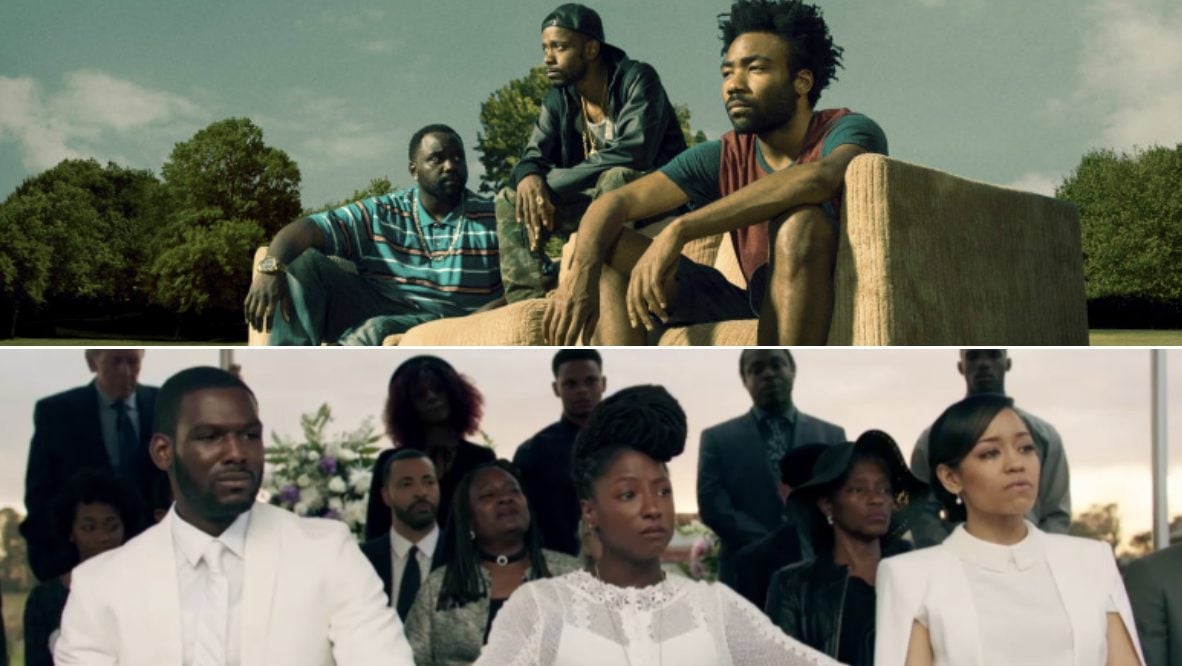Two of this season’s most anticipated TV shows premiere tonight, and neither have white leads
Two new shows will debut Sept. 6 on American cable channels: FX’s Atlanta, a comedy-drama hybrid created by and starring Donald Glover (also known as hip hop artist Childish Gambino) about cousins trying to make it in the titular city’s rap scene, and Oprah Winfrey Network’s Queen Sugar, a slow-burning drama from Selma director Ava DuVernay about siblings struggling to run a Louisiana sugarcane farm after a family tragedy.


Two new shows will debut Sept. 6 on American cable channels: FX’s Atlanta, a comedy-drama hybrid created by and starring Donald Glover (also known as hip hop artist Childish Gambino) about cousins trying to make it in the titular city’s rap scene, and Oprah Winfrey Network’s Queen Sugar, a slow-burning drama from Selma director Ava DuVernay about siblings struggling to run a Louisiana sugarcane farm after a family tragedy.
Based on subject matter and pedigree, neither show would seem out of place at an award show. But unlike the majority of prestigious cable series, both of these shows feature predominantly black casts.
Several critics have hailed Atlanta as the best new show of the fall television season, specifically praising its delicate balance of comedy and drama, and how the show feels wholly unlike anything else currently on TV. Critics are praising Queen Sugar too—HitFix’s Alan Sepinwall argued it could become TV’s next great family drama, a title once held by shows like The Sopranos and Six Feet Under.
Atlanta has an all-black writers’ room. All of its episodes will be directed by Hiro Murai, a Japanese-American director best known, until now, for making music videos. All 13 of Queen Sugar‘s episodes will be directed by women, a major development considering how underrepresented women are in the industry. (During the 2014-2015 TV season, only 16% of directors were women, according to the Directors Guild of America.)
Fortunately, in 2016, we are at the point when news of a TV show (or film) with a cast comprised mostly of black actors is no longer surprising. A number of current American television series feature black casts, including ABC’s Black-ish, Fox’s Empire, Starz’s Power, and Netflix’s The Get Down. Other shows, like HBO’s The Leftovers, have introduced black characters to shows that had been mostly white. Not to mention, there’s a long history of great sitcoms about black families, from The Jeffersons to The Cosby Show to The Fresh Prince of Bel-Air.
But Atlanta and Queen Sugar feel different, and not only because they boast diverse writers and filmmakers in addition to having non-white casts. These shows are what one might call “prestige cable TV”—you know, the type of show that is the topic of debate at the office or around your dinner table. They’re the shows that inspire think pieces, and, yes, win awards.
In the past, these shows were, with notable exceptions, reserved almost exclusively for white writers, directors, and actors to tell stories about white people. Glance at this year’s Emmy nominees for best drama (The Americans, Better Call Saul, Downton Abbey, Game of Thrones, Homeland, House of Cards, and Mr. Robot.) and, again, with one small exception, you’ll see a list of shows created by white people, about white people. (This year’s comedy slate is a bit more diverse, including the aforementioned Black-ish, as well as Netflix’s Master of None, which stars Indian-American Aziz Ansari.)
Prestige film, meanwhile, is even less diverse. Not a single acting nomination at last year’s Oscars went to a non-white person. While the film Academy took steps recently to correct that omission, they can only award films from the pool available, and there simply weren’t enough films featuring black actors last year as there should have been.
If you’re Donald Glover, though, you’re not making your show to win awards. “I’m not interested in making something important,” he told the Daily Beast. “I don’t want to win an Emmy for most diverse cast. That’s fucking bullshit.” Instead, Glover has said repeatedly that he’s just trying to show people what it’s like to be black.
Glover doesn’t need an Emmy for validation, but, should he receive one, it would prove that new, previously unheard voices are being shared and appreciated, and that untold stories are receiving their due moment in the sun. The fact that these shows exist at all, critical acclaim notwithstanding, is worth valuing.
Atlanta could not have happened 20 or even 10 years ago. And Queen Sugar probably would not even have a home on television, if not for the growth of cable, with more networks like Oprah Winfrey Network developing scripted content. Atlanta and Queen Sugar feel like the result of a television culture that’s changing, just as the number of available platforms is expanding.